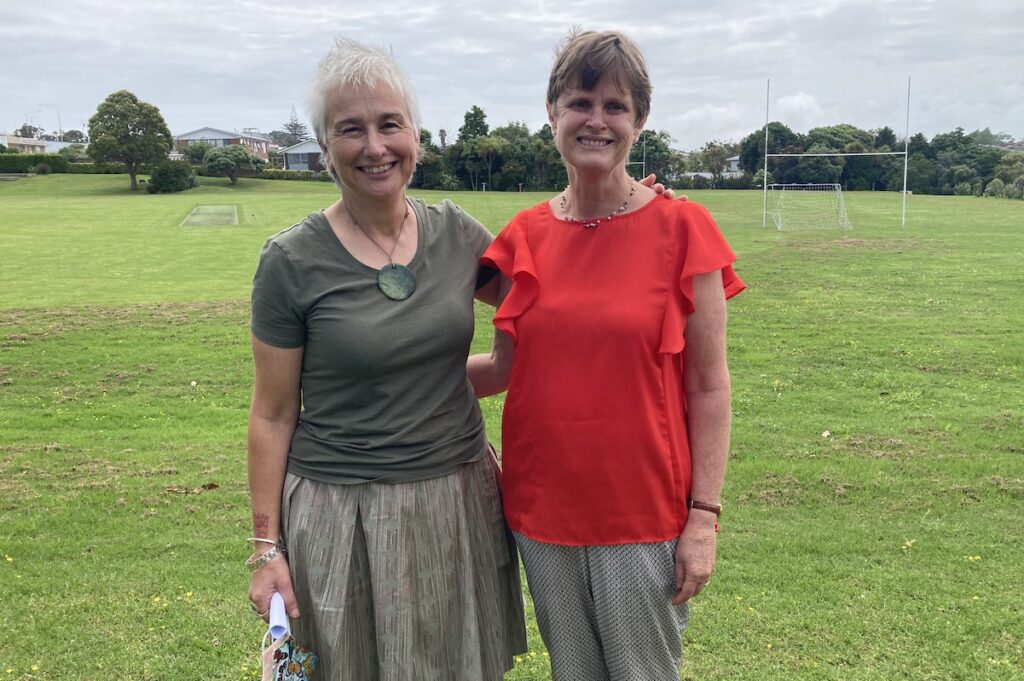What's New
15 December, 2021
Bayswater Primary farewells valued teaching duo

Dianne Cluett retires from Bayswater Primary School today after 25 years of teaching there, leaving a legacy of trailblazing commitment to the environment.
The Narrow Neck resident was a driving force behind Bayswater’s Enviroschools programme from 2003. It now has Green-Gold status, the only school on the peninsula at this level. Children learn to care for their place in the world, helping with beach clean-ups, planting and weeding in local reserves, and teaching their parents to save water and power. High numbers walk or bike to school.
Bayswater principal Lindsay Child, who is also leaving the school at the end of this year – after a decade in charge – says Cluett is one of the most learning-focused teachers she has come across.
“She is dedicated to making every minute in the classroom count. She will be innovative until the last day in class.”
Cluett – who has been teaching since 1979 – admitted she was only just starting to think about the reality of how much she would miss the collaboration of being in class.
“I just love hearing their thinking,” she says of her students. “I will miss the staff, I will miss the kids and the school community.”
But retirement at age 65, will give her more time with her three grandchildren and husband. “We’ve bought e-bikes and we plan to do lots of cycle trips in the South Island,” she says.
The women credit each other with embedding the school’s commitment to environmental stewardship. “While we had Arbor Day and so forth, when Lindsay came along [as a teaching deputy in 2005] we became a partnership in this,” says Cluett.
Child says the environmental programme at Bayswater was always about more than gardening. Honouring a Maori perspective, involving children in playground planning and including those with additional needs were just some of the ways a “deep learning” approach engaged everyone.
“It’s in our school charter. It’s part of who we are.”
Passion and respect are mentioned by both women as they discuss each other’s approach to teaching. They say Bayswater is a special school, with an especially supportive staff, board and community. It incorporates a high-degree of te reo use for a mainstream school.
“The children are so empowered, they’re so engaged and the community is too – they love it,” says Cluett.
Her own younger of two daughters attended the school, when she and husband John made the move from South Auckland. “I was 40 and we decided we’d do something new and different.” Beach living appealed.
John, a science teacher, gave her the initial tools to engage her class about water quality. She recalls their being “so horrified” over a dead stream and wanting action.
England-born Child has been on sabbatical much of this year studying how other schools work with marginalised learners. Next year she and her partner are moving to Nelson from Grey Lynn to do an immersion course in te reo Maori.
“We’ll also be doing Great Walks and lots of cold-water swimming which we like.”
At 56, she is not planning on leaving the education sector, but will complete the course then look for new challenges, around improving equity of outcome.
“My belief that education is transformative has not changed.”
Deputy principal Marianne Coldham will again be the school’s acting principal when it resumes in the New Year.
Nearly all pupils have been back full time since lockdown. “They’re settled and learning,” says Child.

Please consider supporting The Devonport Flagstaff by clicking here:
